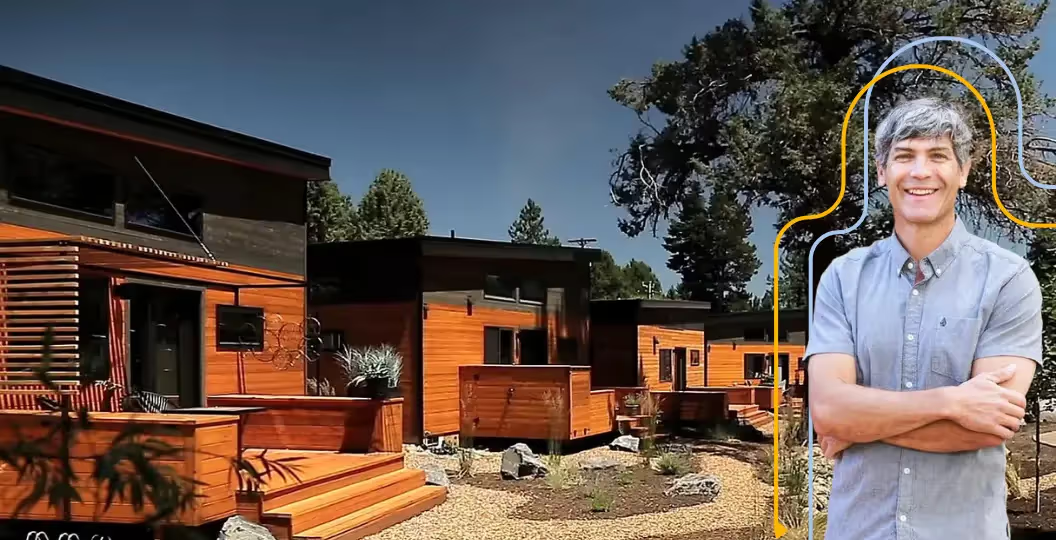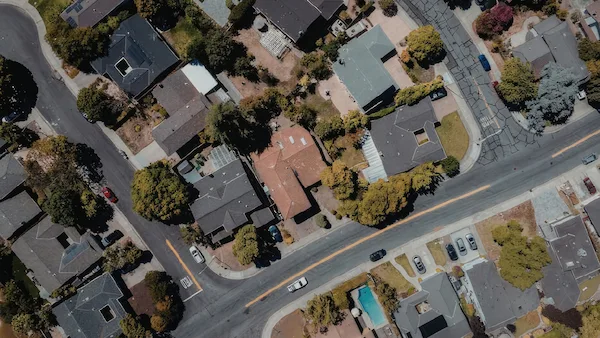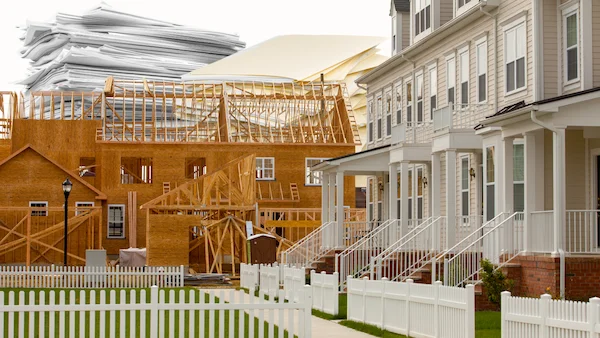Jesse Russell wasn’t trying to reform Bend, Oregon’s development code. He just wanted to build four tiny houses on a lot.
But that simple project ran up against complex rules. At the time, the city’s zoning didn’t allow it. Tiny homes on wheels weren’t considered legal dwellings, and the path forward for small-scale housing was murky at best. That experience kicked off a journey—one that put Russell in close collaboration with city staff, fellow builders, and engaged residents, all working toward a shared goal: making it easier to build the kind of modest homes Bend increasingly needed.
“This all started just by trying to put four houses on a residential lot,” Russell told Norm Van Eeden Petersman on an episode of Bottom-Up Shorts. “And now we have all kinds of code that supports the types of housing that we do and other small-scale developers here in Bend.”
Bend's Turning Point
Bend, once a quiet town of 20,000, now tops 100,000 residents. With that growth has come pressure: to house new neighbors, protect the surrounding natural beauty, and keep the town's identity intact. The challenge? Doing all of that without pushing development outward or making housing even more expensive.
Enter Oregon’s House Bill 2001. Passed at the state level, it required cities to allow a broader range of housing types—like duplexes, triplexes, fourplexes, and cottage clusters—in neighborhoods previously limited to single-family homes.
But Bend didn’t just comply. "We decided to go even further than what the state was mandating," Russell explained. Through a local stakeholder group that included Russell and other residents, the city developed a suite of new options for small-scale housing. Today, Bend’s development code includes support for:
- Micro-apartments
- Small unit developments
- Courtyard housing
- Flexible lot sizes
Russell also helped advocate for a change that makes small homes financially feasible: scaled system development charges (SDCs). These one-time fees, paid to the city when a home is built, used to be flat. That meant a 500-square-foot cottage paid the same as a 5,000-square-foot mansion. Now, smaller homes pay lower fees, making them more financially viable to build. As Russell put it: “It’s just common sense.”
Less Parking Spaces, More People Places
One of the biggest shifts in Bend’s approach to housing was the elimination of citywide parking mandates—an unglamorous change with big implications. Russell explained how it’s already reshaping what’s possible.
“In Bend we completely got rid of parking mandates,” he said. “So for example, we have in development right now a 59-unit micro apartment that only has nine parking spaces to it. It’s very close to transit. It’s on a bike lane that goes right up to the college, and it’s really just in this perfect, perfect spot.”
That development, located adjacent to the Bend Central District—a former industrial zone now transitioning into a mixed-use hub—benefited directly from the city’s decision to rethink parking policy. “We were able to fit many more units of apartments onto the property that we had,” Russell added, “because we didn’t have to have one parking space per unit or two parking spaces per unit, depending on what code you’re looking at.”
Instead of paving over more land to park cars, Bend is focusing on building housing in places that are already connected. And that shift is helping preserve what people love about Bend. “The natural beauty here is just unbelievable–and we want to keep that, you know, people care about that,” he explained. “So when we start to, you know, think about our town and how it's going to grow, we try to be really smart about it.”
In the end, this work isn’t just about blueprints or zoning codes. It’s about a community taking agency over how it grows—choosing a future that reflects its values and the things that make Bend special. Even when bigger systems feel stuck, Russell finds hope close to home.
“That gives me hope for the future,” he says, “no matter what's going on in national government, or even in the state government. We have a group of people here that care.”
Bend’s journey isn’t finished. But thanks to residents and small-scale builders like Jesse Russell, it’s already saying yes to the kinds of ideas that once got shut down. And that’s how stronger towns get built.
Bend, Oregon, is one of many communities that made it onto Strong Towns’ Housing-Ready City map.
Through local leadership and statewide reforms, the city has paved the way for small-scale construction to flourish, creating the modest, affordable homes Bend urgently needs.
Curious to see how your town measures up? Take the Housing-Ready Quiz and find out.





